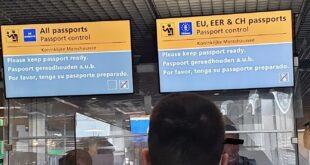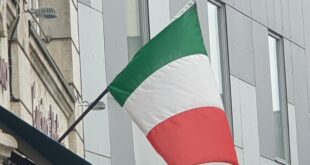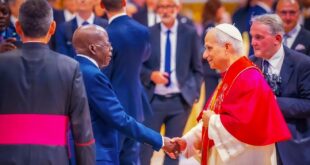Karamba Diaby (57) represents the eastern city of Halle in the German Federal Parliament on the platform of the Social Democrats, the SPD. The election of the Senegalese-born holder of a doctorate degree in chemistry and that of the Afro-German Charles Huber (CDU) as the Bundestag’s first members of African descent in 2013 marked a watershed in the history of this country.
Karamba Diaby arrived in East Germany from Senegal in 1985 with a scholarship in his pocket. Today, he is the first African-born person to sit in the German Federal Parliament. He told us all about his path in Germany and how he believes integration can succeed.
“I was once asked in an interview whether I had to arrive twice in Germany. It was a justified question and I answered ‘Yes’. Because when I arrived as a student from Senegal in East Berlin in 1985, Germany was still divided. Part of my Chemistry study programme was taught from Halle (Saale) – meaning what was then East Germany. Since all foreign students lived in halls of residence, we had little contact with the locals. Later, before and after the Wall came down, gradually the country that had invited me to be there as a student disappeared. While the people were out on the streets yelling “We are the people”, I was asking myself whether I belonged to this “people”. Not to forget that I did not know whether I would be allowed to go on studying. At the end of the day, the German Academic Exchange Service (DAAD) shouldered the costs of my scholarship so I was able to finish my studies in the Federal Republic of Germany, gained a PhD in Geo-Ecology and was able to arrive a second time.
Learning the language
Fortunately, in 1985 I was immediately able to complete a nine-month language course in Leipzig before proceeding to the Martin Luther University Halle-Wittenberg. The language course was key for me. Firstly, it enabled me to follow the curriculum. Secondly it allowed me to converse with local people and forge friendships.
Being interested
It’s important to be interested in the country, the people and the culture – if you want to arrive. If you don’t ask questions and don’t approach people, you will take part less in society and thus be less a part of things. On the other hand, the inhabitants of the place where you arrive need to be interested too. There has to be mutual, benevolent interest. When I was busy writing my PhD on the heavy metal pollution in allotment gardens in Halle and spent lots of time there, people asked me whether I had a family, whether the family was here with me, and what I wanted to do next. They were interested in me just as I was in them. So we got talking, debating, and friendships came into being.

Civic commitment
I was involved in various civic projects during my school and university studies in Senegal and also later in East Germany and the Federal Republic after Reunification. Among other things, I was chair of the International Student Committee and until Reunification I represented the interests of all foreign students at my university in Halle.
Following Reunification I got involved in various charitable organizations in the areas of education, youth policy, diversity and human rights. I believe that being committed to others facilitates integration. Shared commitment enables you to get to know a country and its people better, to establish contacts and to learn the language more quickly. These are all factors that make arriving much easier.”
© Deutschland Magazin
 THE AFRICAN COURIER. Reporting Africa and its Diaspora! The African Courier is an international magazine published in Germany to report on Africa and the Diaspora African experience. The first issue of the bimonthly magazine appeared on the newsstands on 15 February 1998. The African Courier is a communication forum for European-African political, economic and cultural exchanges, and a voice for Africa in Europe.
THE AFRICAN COURIER. Reporting Africa and its Diaspora! The African Courier is an international magazine published in Germany to report on Africa and the Diaspora African experience. The first issue of the bimonthly magazine appeared on the newsstands on 15 February 1998. The African Courier is a communication forum for European-African political, economic and cultural exchanges, and a voice for Africa in Europe.
































